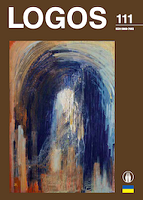Trečiojo nepriklausomos Lietuvos dešimtmečio filosofų fizinės kultūros sampratos
Concepts of physical culture of philosophers of the third decade of independent Lithuania
Author(s): Rūta Marija VabalaitėSubject(s): State/Government and Education, Sociology of Education, Philosophy of Education, Pedagogy
Published by: Visuomeninė organizacija »LOGOS«
Keywords: body culture; spirit; vital powers; creation; cult of the body;
Summary/Abstract: The article deals with the concepts of physical culture set out in Vydūnas' writing “Health, Youth, Beauty”, in Šalkauskis' book “Physical education and its goals”, in Maceina's works “The problem of pedagogical vitalism” and “Prof. St. Šalkauskis' Pedagogy” and in Sesemann's study “Time, Culture and Body”. The aim is to identify the similarities and differences in the views of Lithuanian philosophers and to assess the originality of their ideas. We maintain that all philosophers regard physical culture as a condition to organize one’s body and consider it as inseparable from spiritual culture. Vydūnas emphasizes the lack of physical culture in “cultural” human being, Sesemann explains its necessity for the cultural activity itself and like the other two authors discerns the problems of professional sports and cult of the body, which have become even more relevant after almost a century.
Journal: LOGOS - A Journal of Religion, Philosophy, Comparative Cultural Studies and Art
- Issue Year: 2022
- Issue No: 111
- Page Range: 100-106
- Page Count: 7
- Language: Lithuanian

